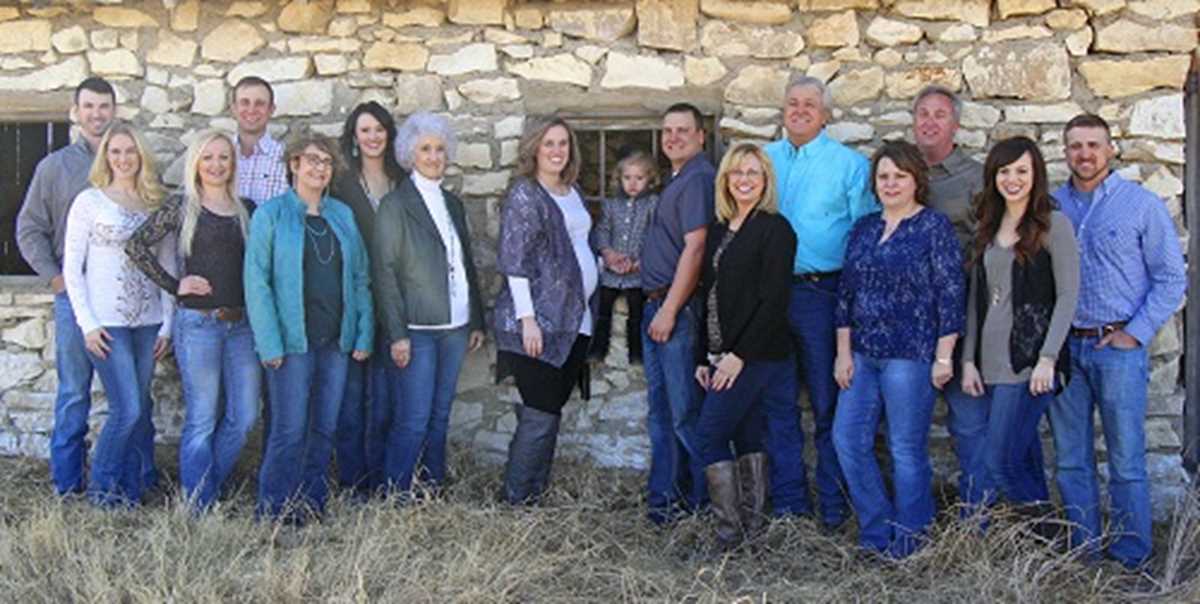DU Works with Landowner to Protect Carbon Assets
Marketing the Ecosystem Services on the May Ranch

In a region where land conversion is high and water rights are prized possessions, one rancher is fighting to continue his way of life, keep grasslands intact and support wildlife on his ranch. Ducks Unlimited helped Dallas May and his family market the carbon offsets their ranch provides and give the family the financial security they need.
Carbon offsets are reductions in carbon dioxide or greenhouse gases made to compensate for an emission made elsewhere. May and his family know their 16,480-acre working ranch in Prowers County, Colorado, is a rare gem where ducks and other wildlife thrive, including some rare and endangered species. The Audubon Society designated the May Ranch as an area of significance for birds. It is also an essential corridor link between two populations of lesser prairie chicken.
"This is native grass the way God made it," May said.
The family managed the ranch for more than 30 years and recently took ownership of the ranch. Soon after, several groups approached the family with offers to convert the ranch to other uses. A large dairy operation wanted to plow the native vegetation and plant feed crops with center pivot irrigation. An investment group interested in the water rights came to the family and wanted to sell those rights to other entities. Finally, three solar power companies wanted to lease one-fourth of the ranch and install solar panels.
The financial implications of these offers made the family consider their future on the ranch. Dallas began contacting conservation organizations to explore options that wouldn't damage the wildlife habitat and allow the family to continue ranching.
"In the beginning, I thought it was us against the world, but after discovering all the organizations and people who value the wildlife habitat here, I know we are not alone," May said.
The Conservation Fund began fundraising for a potential conservation easement. Colorado Cattlemen's Agricultural Land Trust provided guidance and offered to hold the easement in perpetuity. The Nature Conservancy committed staff and resources to define habitat values to garner additional support. Then, Ducks Unlimited's Ecosystem Services team began investigating conservation finance options.
"We wanted to make sure Dallas got the best return on his potential conservation investment. Facing conversion threats on all four sides of the ranch, we knew his land would be a perfect fit for an avoided conversion carbon offset project," said Billy Gascoigne, economist and environmental markets specialist for DU.
Environmental markets, such as the carbon offset market, compensate private landowners for providing valuable public goods such as carbon storage or water purification. The May Ranch has 14,500 acres of continuous native prairie that, if converted, would release around 8,000 metric tons of carbon dioxide per year for the next 50 years. Conserving these grasslands equates to removing the annual emissions of 50,000 cars.
"Conservation works philosophically but not necessarily economically for a working ranch. We needed to find a way to make it work for both," May said.
Environmental market opportunities have historically been sporadic, which hampers their ability to help landowners. Conservation finance and impact investors that value environmental goods and services can play a critical role to address this uncertainty.
"Carbon didn't even cross my mind as an option for my ranch," he said. "Billy has been a crusader for making this all come together."
Gascoigne looked for partners for more than a year. The Pinhead Institute, a Smithsonian affiliate in Colorado, agreed to partner with Ducks Unlimited and provide the necessary financing. Unique partnerships for the purchase of the actual offsets have emerged, including the town of Telluride, Colorado, the Mountain Film Festival, and the Telluride Regional Airport.
"This partnership and the buyers stepping forward are truly one-of-a-kind. We might have different motives as organizations, but we can all see the value in protecting this place," Gascoigne said.
The May family accepted the carbon offset and easement offer, forever protecting the entire working ranch and its extensive wetland habitat.
"I have three children and two grandchildren with hopefully more on the way, and we all live on or near the ranch. My goal is for them to have the same experiences I have had on the ranch. I want to leave that for them," May said.
